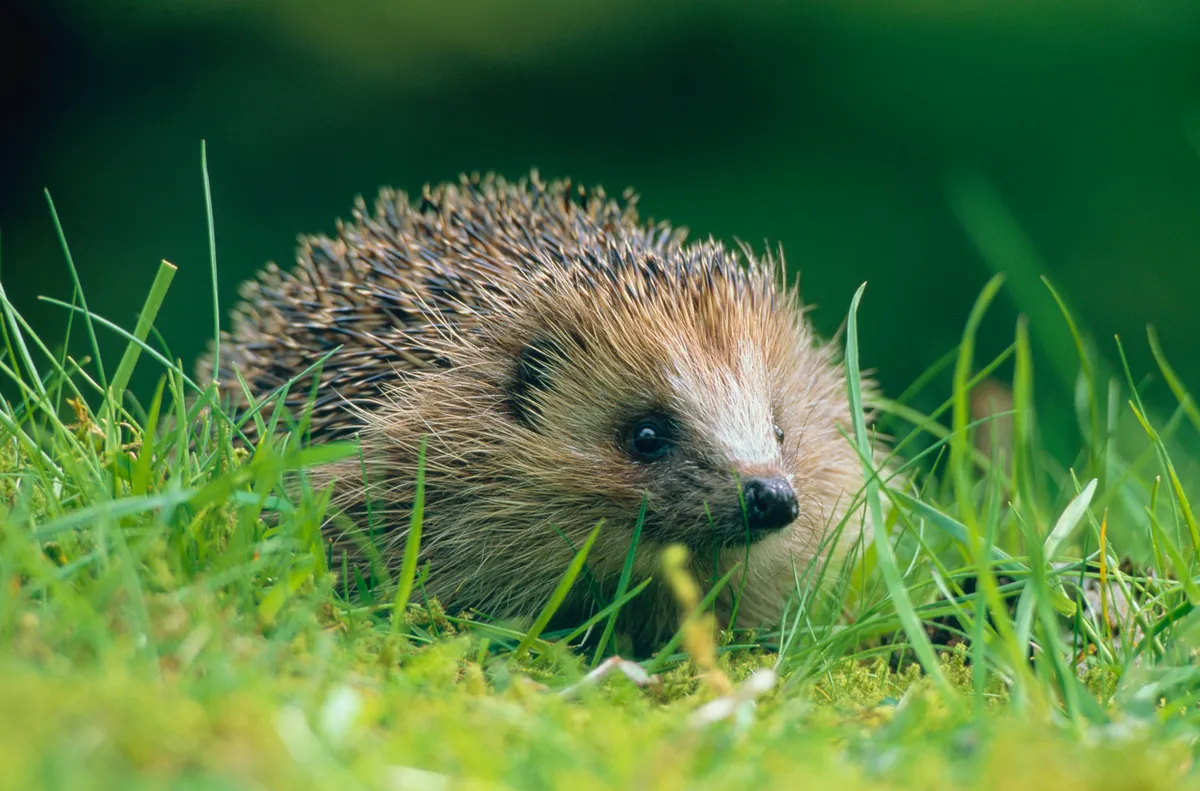Birds’ eggs are a nutritious source of food, so it’s hardly surprising that lots of animals eat them. In summer, egg remains are common, so if you find one, first check if it hatched normally. If it didn’t, it is often possible to identify the thief from the signs left behind. Keep your eyes open and check the evidence carefully – it’s not just the usual suspects that steal birds’ eggs.
Remember, eggshells don’t just fall out of a nest. Predators such as foxes or magpies may carry them away, as do parent birds, often to help conceal the location of vulnerable babies.
Examine every egg for clues. In an egg that hatched naturally, a hole will tend to open outwards as the baby emerged; in predated eggs, holes are punched inwards. And once you’ve found an egg, you can always check out our bird egg guide to help you to identify it.
Learn how to identify birds’ eggs thieves with our expert guide, including which species the egg came from and where you are most likely to see birds’ eggs remains.
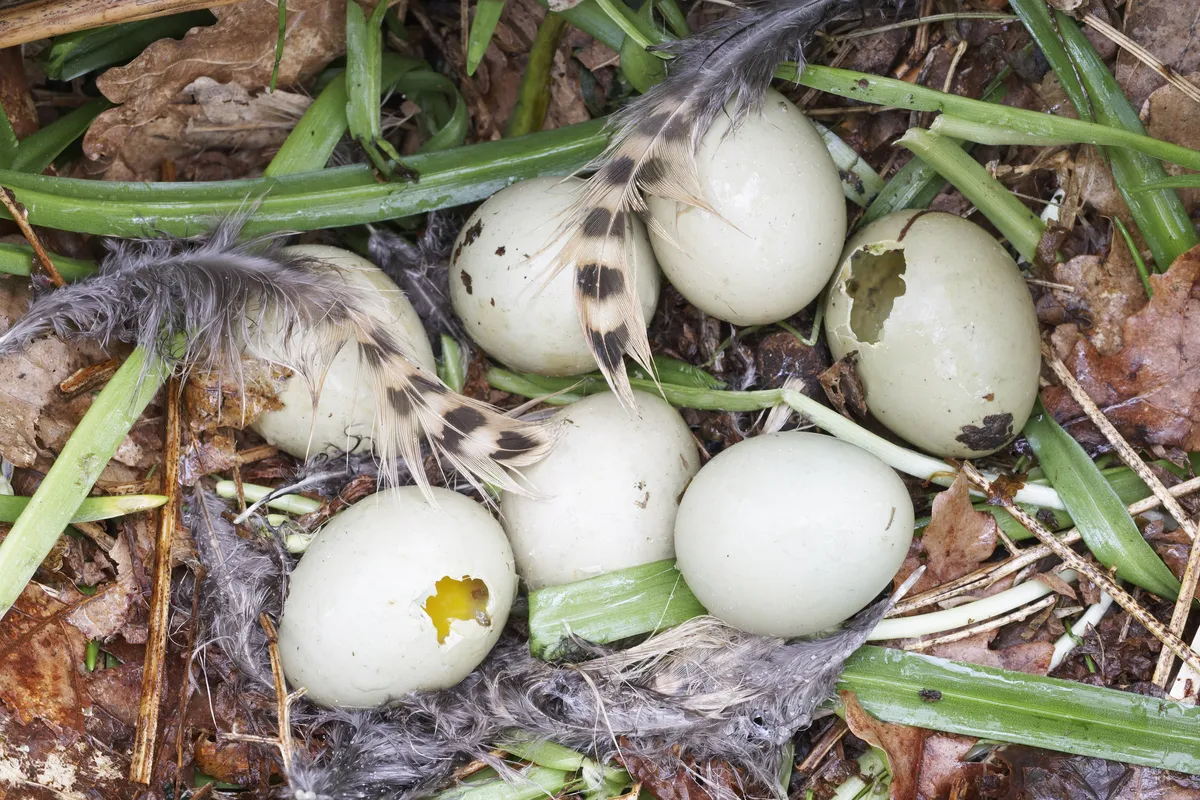
How to tell is an egg hatched naturally or was predated
Naturally hatched eggs
- Most eggshells you find will have been thrown from nests after the chicks hatched or are the remains of ground-nesting birds’ eggs that hatched normally.
- When hatching, chicks use their egg-tooth (a horny spike on the upper mandible) to make a circular cut across the blunt end of the egg; the edge is jagged where the chick has chipped its way out.
- As the empty shell dries out, the inner membrane contracts and ‘rolls’ the chipped edge inwards.
- Unlike predated eggs, hatched eggs never have yolk or egg-white left inside the shell.
- The two halves of the shell are often found close together. To remove them from the nest, the parent may carry one half of the egg inside the other.
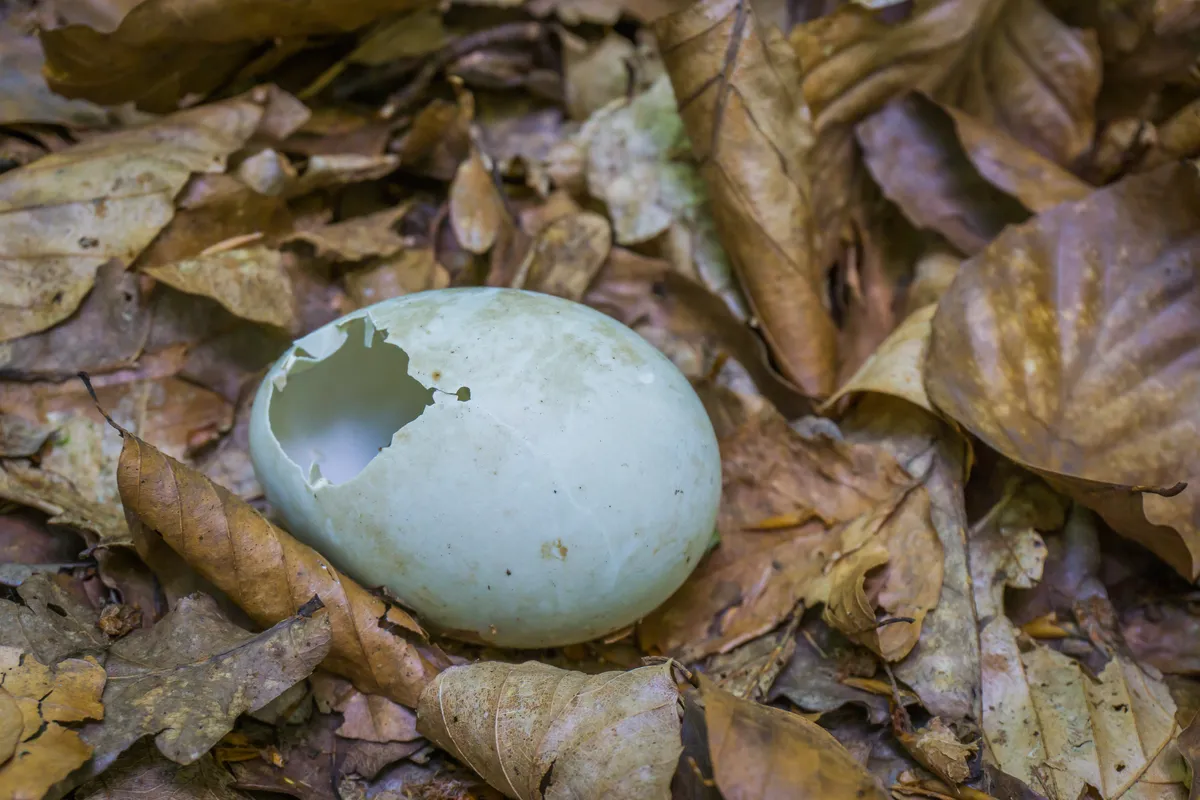
Which animals eat birds' eggs?
Mustelids
- Pine martens and polecats generally carry eggs off to eat elsewhere. They characteristically bite across the egg, leaving an oblong or rectangular hole through which they lick up the contents. Small canine tooth punctures may be left in the eggshell.
- Stoats and weasels, being smaller, eat larger eggs in the nest. They bite a hole in one or both ends of the egg.
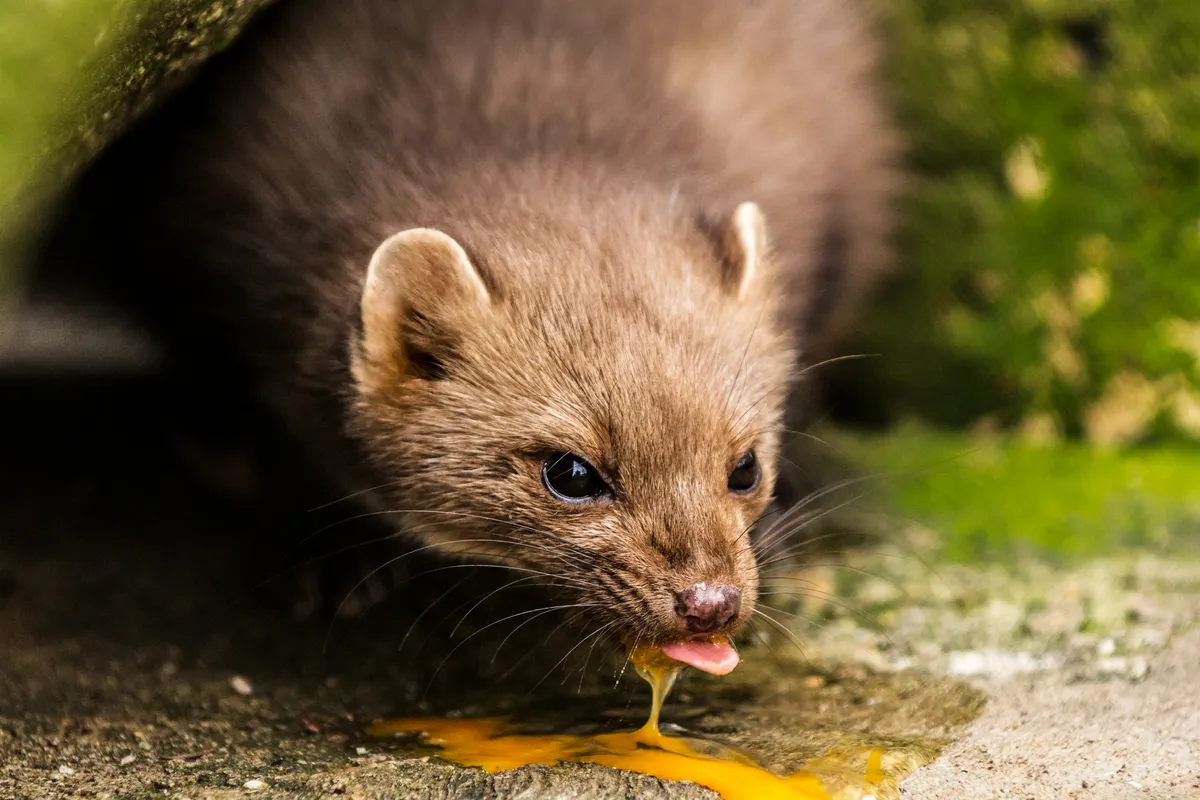
Foxes
- Foxes generally carry eggs away from nests. They may then eat them or they will cache (bury) them for consumption later.
- The whole egg is taken in the mouth, crushed and the contents eaten. Eggshells are left some distance from the nest.
- A fox will often catch mallards, pheasants and partridges on their nests. If this has happened, the nest will be damaged, with scattered feathers if the carcass has been carried away or the remains of the carcass if it has been eaten nearby.
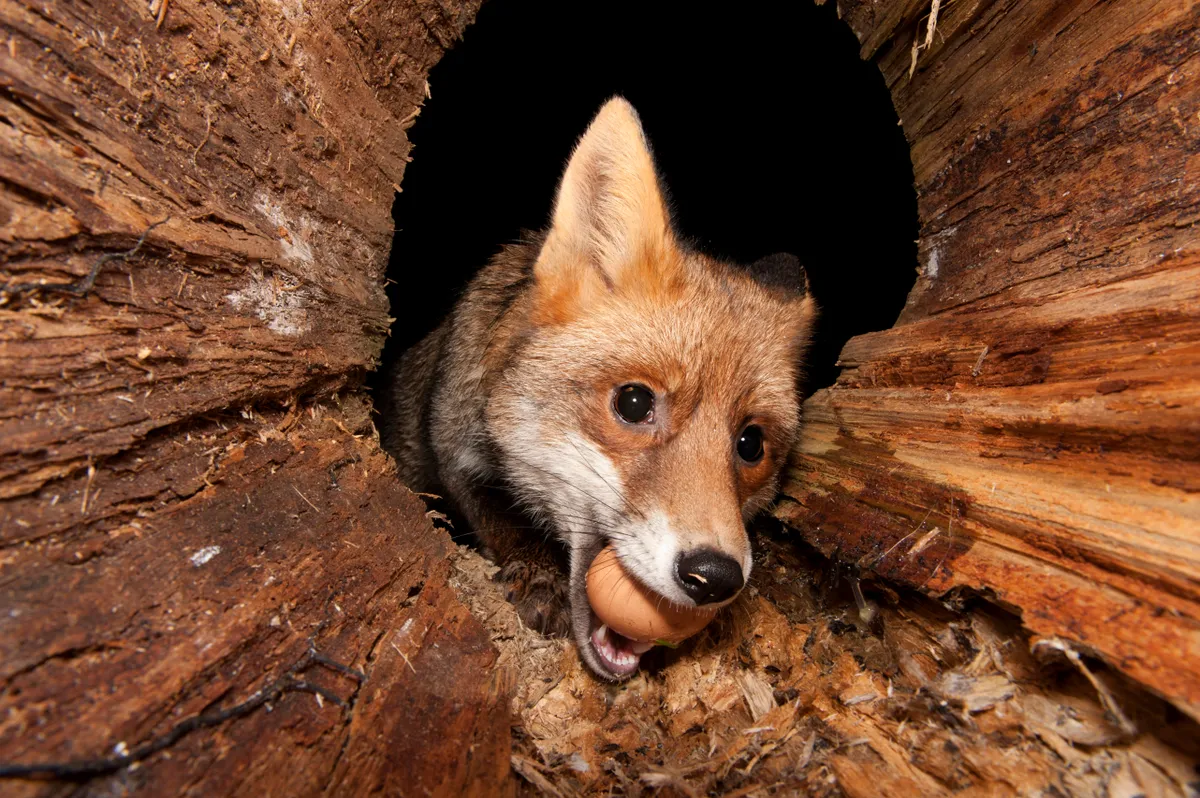
Rats
- Rats prefer the large, cryptic eggs of colonial nesting birds and consume the eggs in the nest.
- They make a hole in the side or end of the egg with characteristic chip marks, then lick out the contents.
- Squirrel signs are very similar.
- A common myth is that rats co-operate to steal hens’ eggs – one lies on its back, holding the egg to its chest, while another rat pulls out the content with its tail. This is not true.
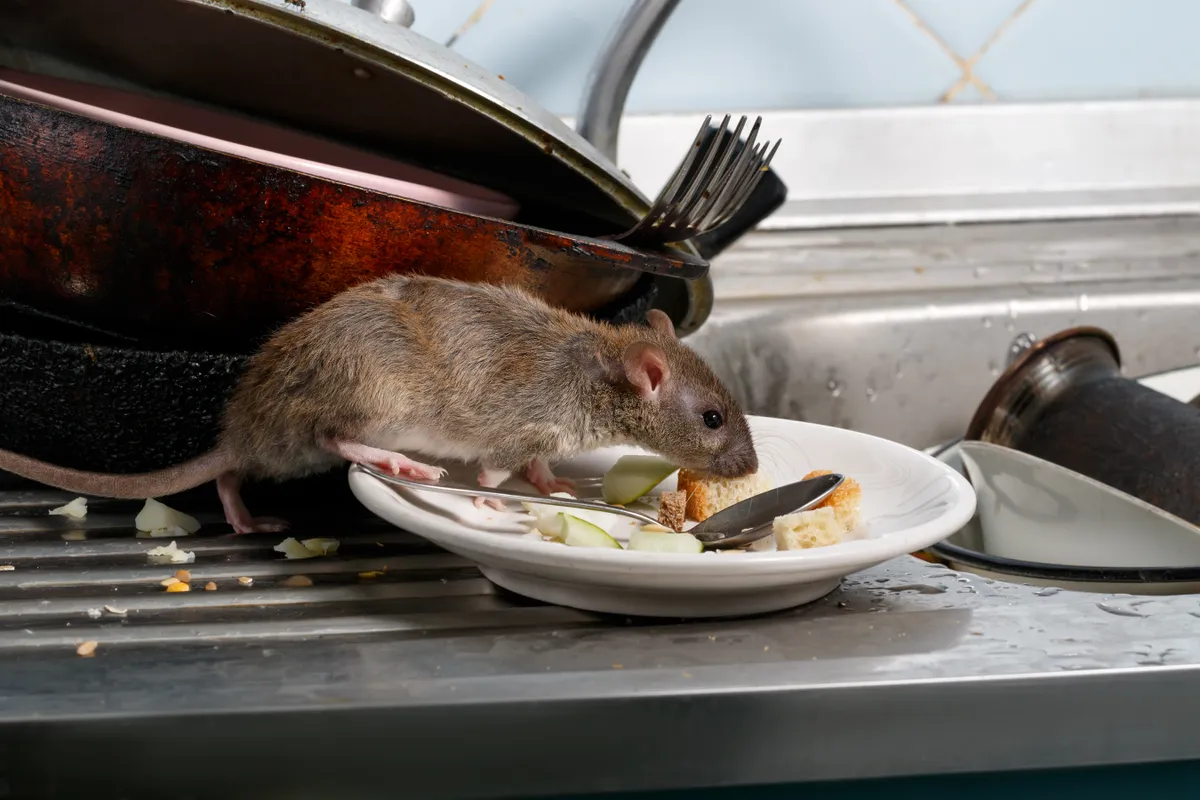
Cuckoos
- Cuckoos parasitise the nests of many birds, typically dunnocks, pipits, robins, wagtails and warblers.
- A female cuckoo lays one egg in each nest and removes one of the host’s eggs.
- The cuckoo hatches first and then ejects the eggs or nestlings of the host. It squirms beneath them, rears backwards against the sides of the nest with its back arched and wings raised, and then rolls the egg or nestling over the edge of the nest cup.
- The eggs or nestlings can be found below the nest; the eggs will normally have a well-developed embryo inside.
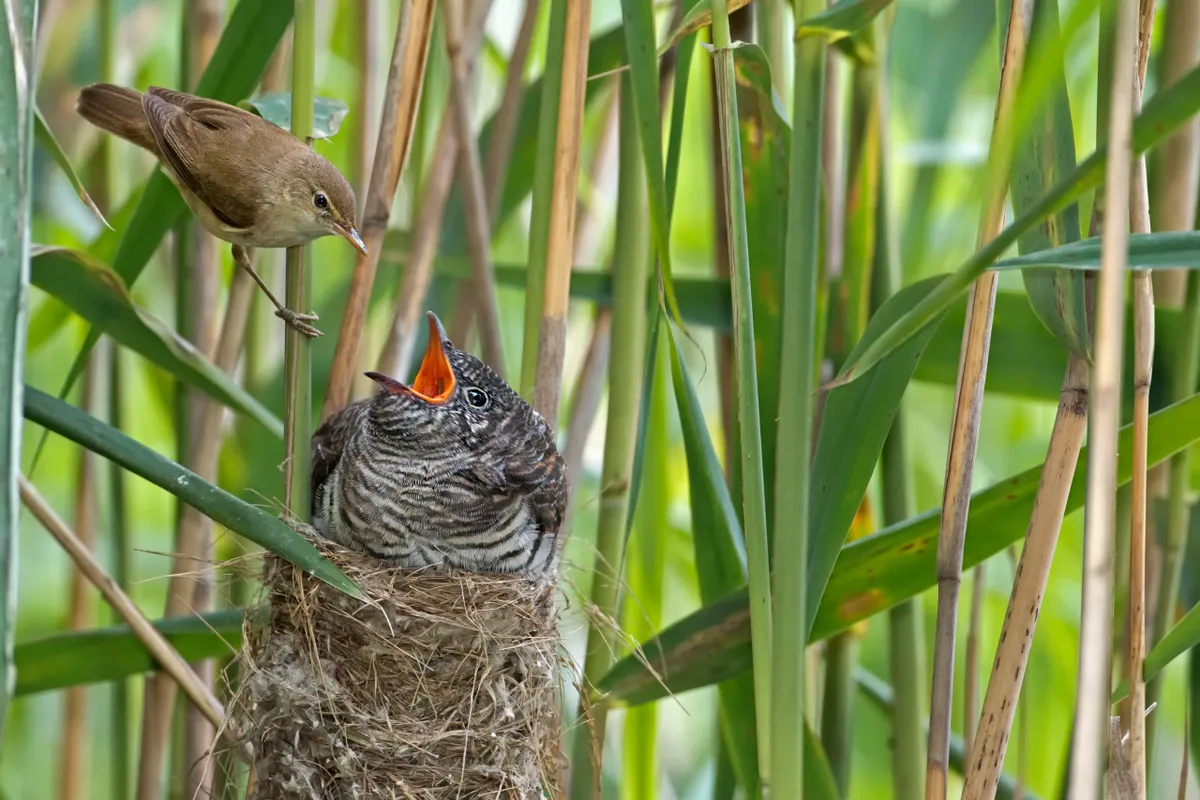
Corvids
- Crows and other corvids (magpies, jackdaws, rooks, ravens and jays) are probably the most common predators of bird nests. They actively search hedgerows for nests and scan the ground from trees for nesting birds.
- They make a small puncture in the side or end of the egg, then insert their upper bill into the hole to lift the egg and drain the contents.
- They may eat the egg on the nest but often carry it off – remains of several eggs can be found at favoured eating points. Gulls make similar holes but generally eat the egg on the nest.
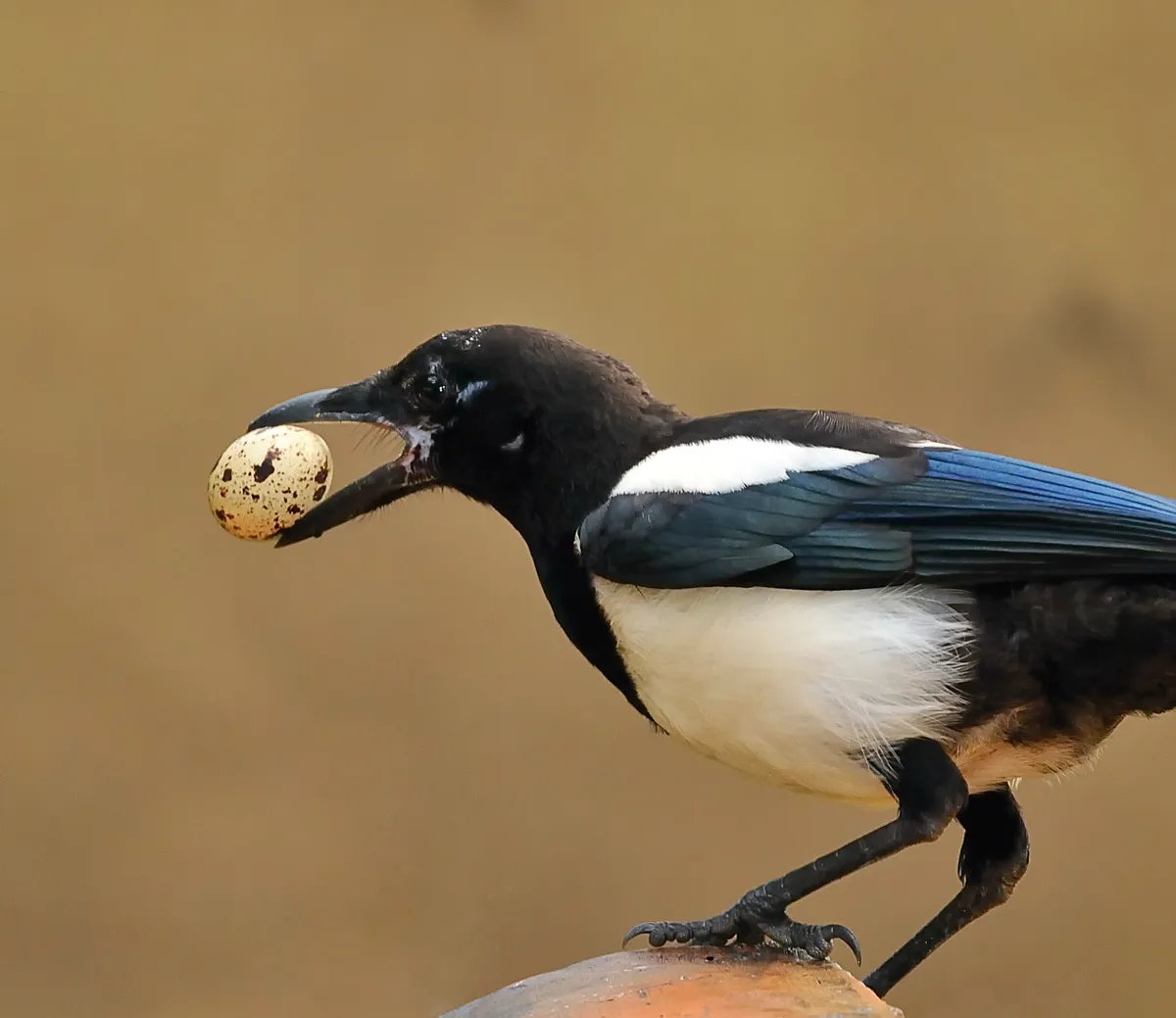
Hedgehogs
- Hedgehogs drive sitting birds off their nests and eat the eggs in situ.
- They bite a large hole in the side of the shell and lick up the contents.
- All that remains are shallow cups of eggs, shattered fragments of eggshell and the remains of the contents spattered around the nest.
